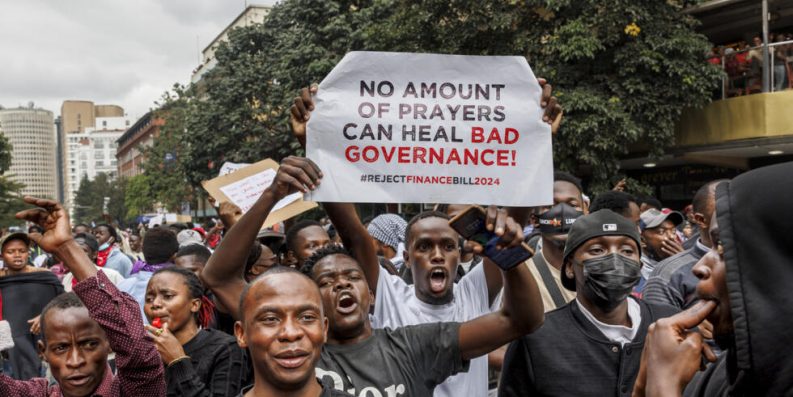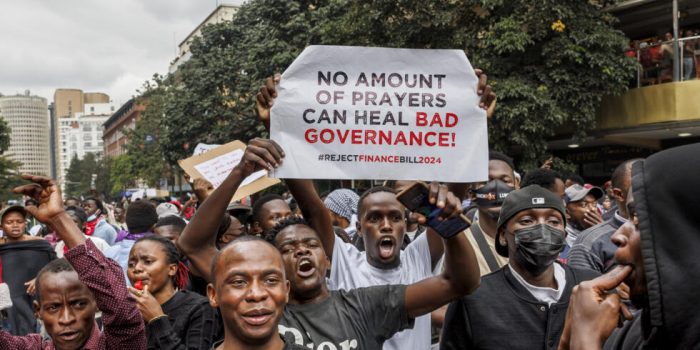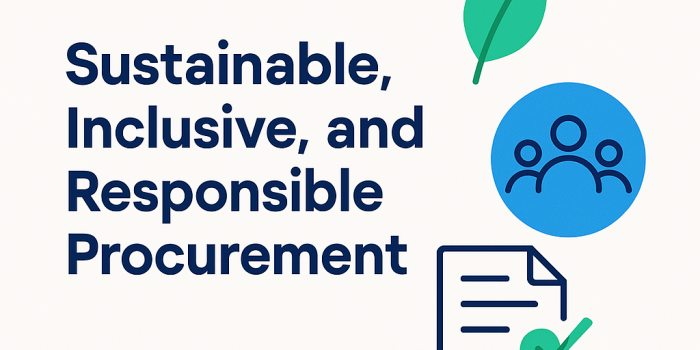The Protest Was Just the Start: The Real Revolution Is in How We Spend Public Money!
Despite reforms, procurement remains a black box to most citizens. And yet, it accounts for more than 30% of government expenditure. If we’re serious about economic reform, this is the place to start.

Why Kenya’s procurement systems remain at the centre of public frustration, and why fixing them is the key to lasting change.
Exactly one year ago today, thousands of young Kenyans mobilised to protest against punitive taxation, runaway debt, and a broken political economy. It was a historic moment; peaceful, powerful, and profoundly organised by Kenya’s youth.
Today, June 25, 2025, they are back.
Back on the streets. Back online. Back demanding change.
This time, it’s not just about one Finance Bill. It’s about a deeper, systemic failure: a government that continues to extract more than it delivers. And while taxes dominate the headlines, the real pressure point is public spending, especially how contracts are awarded, who benefits, and whether public money serves the public good.
That pressure point is called procurement.
Procurement: Where Policy Becomes Practice
Procurement is how government budgets come to life. Whether it’s building roads, supplying hospitals, or digitising public services, it all begins with a tender.
But procurement in Kenya has long suffered from:
- Opacity — Who wins contracts? At what price?
- Cronyism — Are awards based on merit or connections?
- Exclusion — Why do youth, women, and small businesses rarely benefit?
Despite reforms, procurement remains a black box to most citizens. And yet, it accounts for more than 30% of government expenditure.
If we’re serious about economic reform, this is the place to start.
What Protesters Are Saying — And What It Reveals About Procurement
-
“Stop wasting our taxes.”
→ Billions are lost each year to inflated, fictitious, or unnecessary tenders that deliver little to no public value. -
“We need jobs and opportunities.”
→ Youth-owned and community-based businesses are routinely locked out of public contracts, despite being qualified and ready. -
“We don’t trust government decisions.”
→ Procurement remains opaque — there’s no visibility into who gets awarded tenders, how decisions are made, or what value is delivered. -
“We want accountability.”
→ Supplier performance is rarely tracked. Failed or abandoned projects go unpunished, and public funds disappear without consequence. -
“Leaders flaunt ill-gotten wealth on TikTok while the economy suffers.”
→ Corrupt procurement practices enrich a select few, while the rest of the population faces rising costs and economic insecurity. -
“This Finance Bill is punishing us for their failures.”
→ A dysfunctional procurement system fuels public debt, waste, and the need to extract more revenue through harsh taxation.
Fixing Procurement Is Fixing the System
The path forward isn’t paved by anger alone. The real solution lies in good governance, radical transparency, a justice system that punishes the corrupt, and a procurement process where merit wins and inclusion is the standard, not the exception.
Only then can public money begin to serve public good and restore the trust that has been lost.
- Good Governance: Leadership that prioritises the public interest over private gain, and delivers services with integrity and efficiency.
- Radical Transparency: Open access to data on how public money is spent — from tenders to contracts, evaluations to delivery reports.
- A Justice System That Punishes the Corrupt: No more impunity. Those who abuse public resources must face real legal and financial consequences.
- Merit-Based Procurement: Contracts should be awarded based on value, capacity, and track record, not connections or kickbacks.
- Inclusive Economic Participation: Youth, women, persons with disabilities, and SMEs must have fair, supported access to public contracting opportunities.
- Restored Public Trust: When citizens can see value for money, they’re more likely to participate, comply with tax obligations, and believe in the system again.
A Generation That Protests Is Ready to Compete
Kenya’s youth aren’t just angry — they’re ready. Many have registered businesses, acquired KRA PINs, learned to bid, and are eager to build. But they’re kept out by red tape, favouritism, and bureaucracy.
Fair and transparent procurement gives this generation the platform it deserves.
It’s not just about protests in the streets, it’s about creating value in the economy.
Let’s Move from Protest to Policy
We now know what happens when a generation feels ignored: they mobilise. But real transformation happens when systems change.
Procurement should no longer be seen as a backroom activity for bureaucrats; it is a frontline of governance. If we get it right:
- Citizens will trust institutions again.
- Public money will work for the public good.
- A generation of entrepreneurs will rise.
The Tender Is Still Political, And the Streets Know It!
“You can’t tax people into poverty and then tender your friends into prosperity.”
That’s the message today’s protesters are sending. One year later, little has changed. But their voices are louder, smarter, and more coordinated.
If we want progress, we must move beyond one-off protests and fix the systems that feed public anger. And that begins with reimagining procurement as a tool for justice, not capture.
Because the real revolution is in how we spend.







